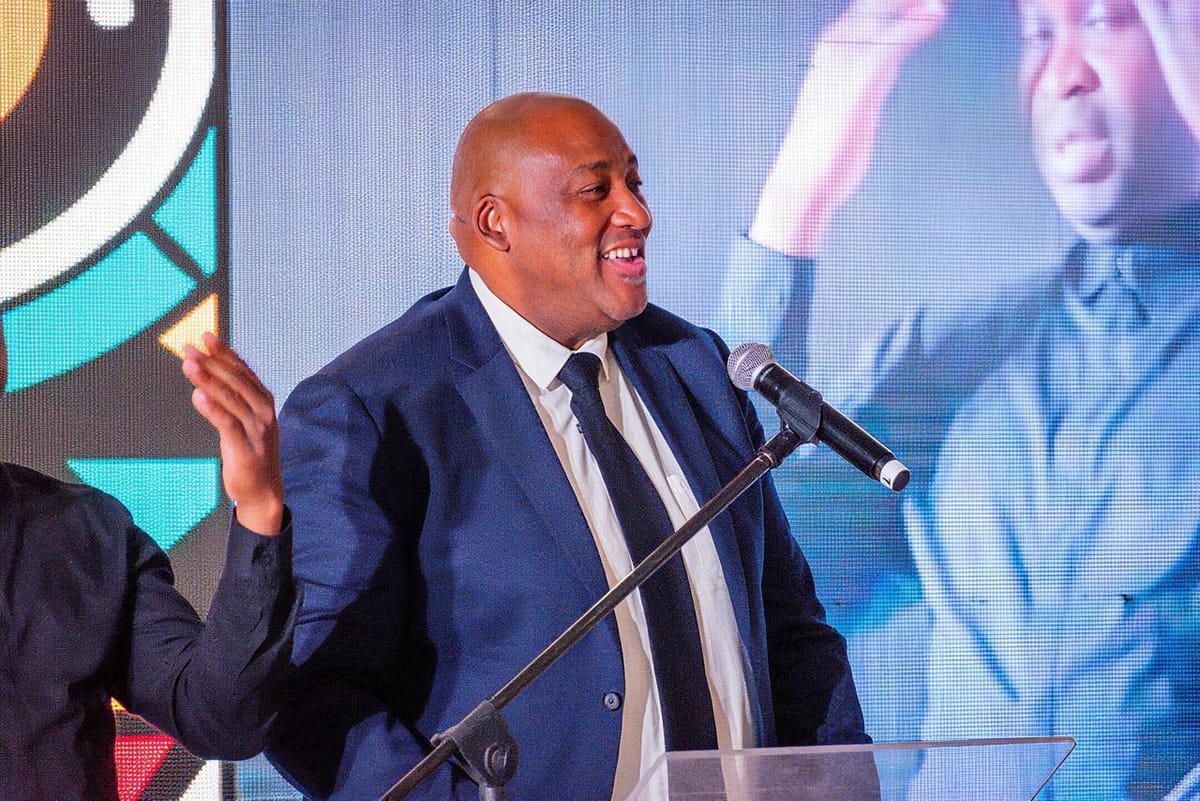
South Africa’s arts minister Gayton McKenzie used the opening of the G20 Culture Ministerial in KwaZulu-Natal to call on world governments to treat culture as a pillar of economic policy, heritage justice, and digital equity—declaring that “culture is the lifeblood of nations.”
His speech was delivered last week as South Africa winds down its G20 presidency ahead of the intergovernmental forum’s summit in Johannesburg on November 22. The G20, or Group of 20, is a meeting of the heads of state of 20 member nations, the European Union and the African Union to address the global economy and other issues like climate change.
As chair of the G20 Culture Working Group, McKenzie urged global leaders to center culture in economic and development agendas and pressed for heritage restitution and fairer treatment of digital creators.
“I emphasize: culture, in its many forms — traditional, modern, digital, indigenous, diasporic — is not an after-thought; it is a driver, an enabler, a platform for equality, justice and partnership,” McKenzie said in his speech.
The remarks are significant because they directly reframe culture from a side-topic into core agenda material—stating that world leaders gathering for the summit should go beyond economics and trade to include cultural infrastructure and equity. He said this comes at the direction of South African President Cyril Ramaphosa.
“You cannot talk about global economic inclusion if you leave out the cultural economy. And you cannot talk about equitable digital participation if respect for cultural creators is absent,” McKenzie said.
McKenzie said the arts are not ‘an ornament’ but a form of ‘soft power’ and ‘value creation’ for nations that invest in them.
“The nations that understand this are the nations that thrive,” he said.
In Zimbali, McKenzie pushed the G20 to formally recognize digital cultural labor as a pillar of the global economy — a move that would push wealthier nations and tech giants to open funding and monetization pipelines to creators in the Global South, such as through international development funds and cultural grants.
“We live in a digital age where creativity travels faster than any ship or plane. A song written in Soweto can reach a teenager in Seoul within seconds. A dance in Nairobi can inspire a trend in New York before the day ends. But even though creativity travels freely, money does not,” he said. “That is injustice dressed up as an algorithm.”
He added that “equally urgent” is the need to address the restitution of cultural artifacts, which he called “scars of colonialism that we are finally healing.”
“We recognize with gratitude and respect the positive steps already taken by former colonial powers and institutions,” he said. “For example, France has begun returning artefacts to African countries. Germany likewise, and several other European nations and institutions have committed to transparent provenance reviews and restitutions.”
He revealed that South Africa has urged other G20 members to make pledges toward restitution of looted artifacts.
“It is not a crime to inherit something that was never yours to own from actions that you did not commit. But it is a stain upon you to continue to keep it and, through inaction, to continue the perpetuation of the historical crime,” he said.
“Our presidency calls on all G20 members to adopt national restitution frameworks, and to support the establishment of an International Cultural Restitution Fund that helps with provenance research, storage, and repatriation logistics — especially for nations without the resources to do so alone.”
McKenzie ended his speech with a handoff to the United States, which will assume the G20 presidency through 2026. He urged the administration of President Donald Trump to continue the cultural vision of the forum.
The hand-off of the G20 presidency from South Africa to the United States comes as Washington is aggressively reshaping its domestic culture policy.
Recent executive orders have directed institutions such as the Smithsonian to review exhibits for “improper ideology,” curtailed diversity-based arts programs and announced another withdrawal from UNESCO — steps that mark a turn inward compared with South Africa’s culture-as-economy agenda in Zimbali.
